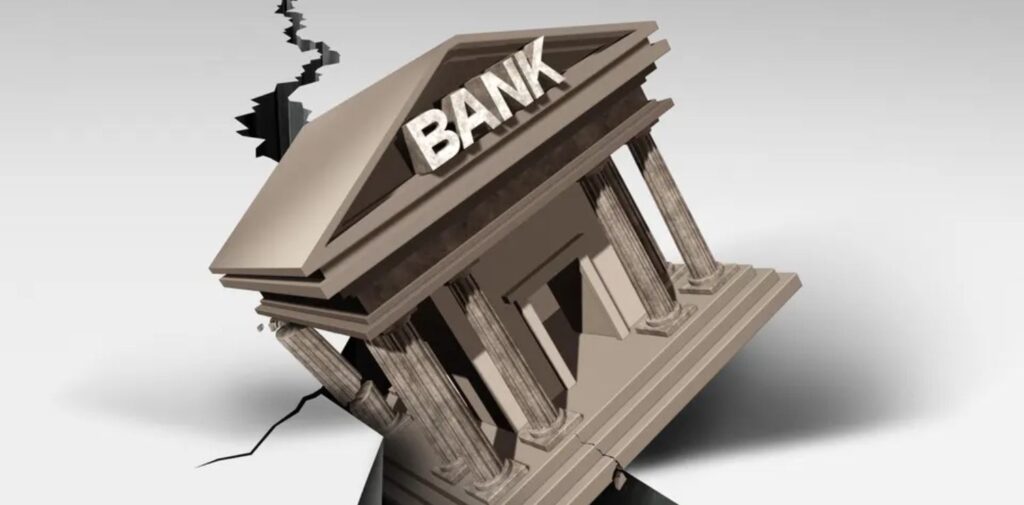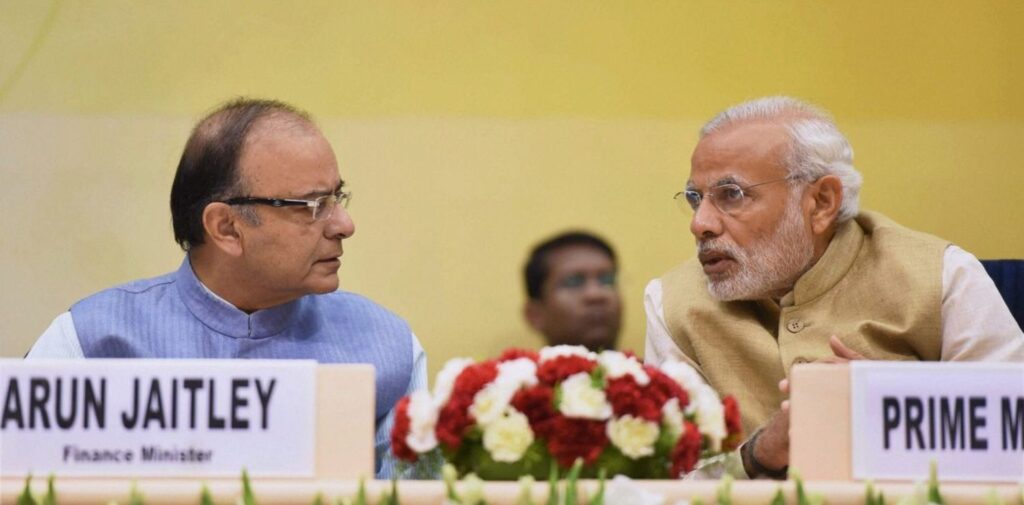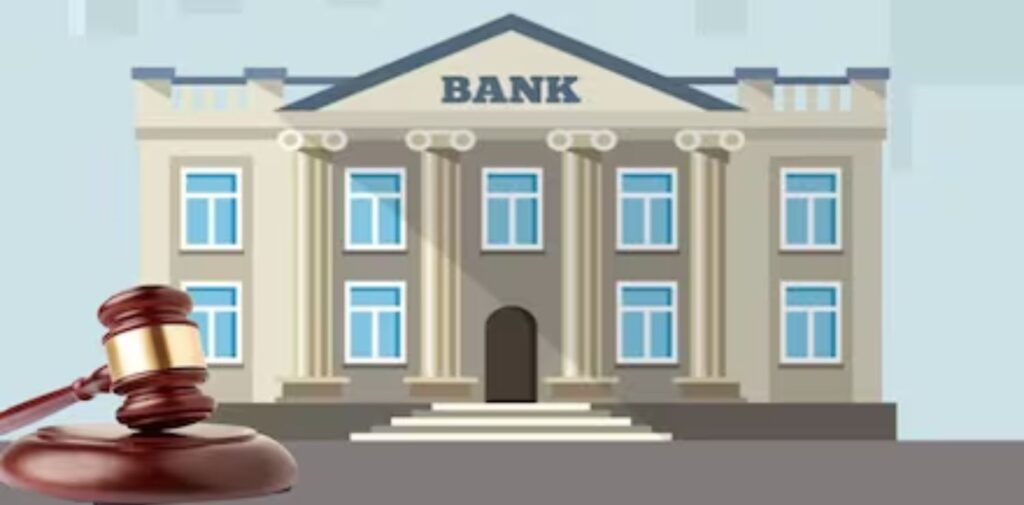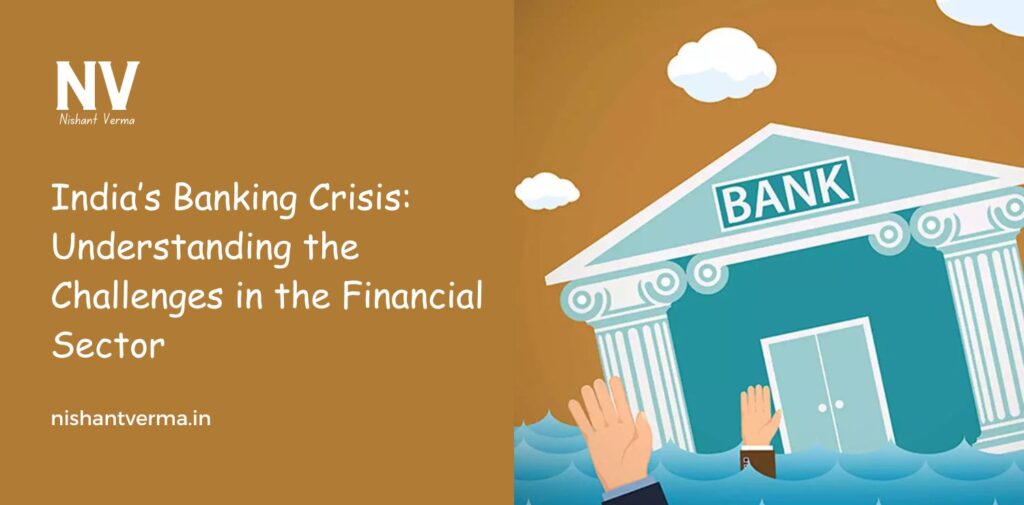India, a country with over 1.4 billion people, has one of the largest and fastest-growing economies in the world. But like all nations, India faces several challenges in its financial sector, and one of the most serious is its banking crisis. The banking system plays a crucial role in the economy by managing people’s money, helping businesses grow, and supporting government projects. However, India’s banking system has faced many difficulties that have affected millions of people.
In this article, we will explore what a banking crisis is, why it happens, and how it affects India and its citizens. We will also look at the steps the government has taken to solve these problems and what we can do as a society to ensure a better financial future.

What is a Banking Crisis?
A banking crisis occurs when many banks face major problems at the same time, such as running out of money, having too many bad loans, or failing to function properly. When a bank fails, it can lead to people losing their savings, businesses shutting down, and even the entire economy slowing down.
In India, the banking sector has had several challenges that have led to what many experts call a “banking crisis.” These challenges have been ongoing for a long time and have affected the health of many banks, especially government-owned ones. These problems include:
- Bad Loans (Non-Performing Assets) – This is when banks lend money to people or companies, and they are unable to pay it back. These loans are called “bad loans,” and when too many bad loans accumulate, it can hurt the bank’s ability to function. Many Indian banks have struggled with bad loans, making them weak financially.
- Bank Failures – Some banks in India have failed because they were unable to recover their bad loans. This is dangerous because if a bank collapses, people lose their money, and trust in the banking system drops.
- Corruption and Mismanagement – Many banks in India have been affected by corruption or poor management. This means that even though banks have a lot of money, they are not using it properly. Some bank officers have made wrong decisions, lending money to people who could not repay it, or using bank funds for personal reasons.
The Root Causes of India’s Banking Crisis
The banking crisis in India can be traced back to several key causes:
- Loans to Big Companies: Over the years, many large companies in India borrowed huge amounts of money from banks. However, some of these companies failed to repay their loans. The banks, especially government-owned ones, gave loans to these big businesses without properly checking if they could repay. When these companies went bankrupt, the banks could not recover their money.
- Slow Economic Growth: India’s economy, like any other, faces ups and downs. When the economy slows down, businesses don’t earn enough money, and they struggle to repay loans. This results in more bad loans for banks. Slow growth affects both businesses and consumers, making it harder for banks to operate normally.
- Weak Bank Regulations: In the past, India’s banking sector lacked strong rules to prevent banks from making risky loans. Without proper supervision, some banks took too many risks, which led to a pile-up of bad loans. The lack of strict rules allowed many of these problems to grow unchecked.
- Political Influence: Sometimes, politicians influence the decisions of banks. They may push banks to give loans to certain businesses or people in exchange for favors. This political interference can cause banks to make bad decisions, leading to losses.
How Does the Banking Crisis Affect People?
The banking crisis doesn’t only affect banks—it impacts everyone in the country. Here’s how it affects the average Indian citizen:
- Loss of Trust in Banks: When a bank fails or makes poor decisions, people begin to lose trust in the banking system. They may fear that their hard-earned money is not safe, which leads them to withdraw their money. This loss of trust makes it harder for banks to attract new customers or do their job properly.
- Impact on Savings: Many people in India save their money in banks to keep it safe and earn interest. However, during a banking crisis, these savings are at risk. If a bank collapses or faces difficulties, people may not be able to access their savings.
- Job Losses and Business Shutdowns: A banking crisis also leads to fewer loans being given to small businesses. Without loans, businesses cannot grow or pay their employees, leading to job losses. This harms the economy, as many people depend on these businesses for employment.
- Slower Economic Growth: A banking crisis slows down the economy. Without healthy banks, it is hard for businesses to expand, which means fewer jobs and less money for families. This impacts every part of life, from buying food to sending children to school.

What Has the Government Done to Fix the Crisis?
The Indian government and the Reserve Bank of India (RBI) have taken many steps to fix the problems in the banking sector. Some of the measures include:
- Cleaning Up Bad Loans: The government has set up special committees to clean up the bad loans. These committees help banks recover the money from businesses that are not repaying their loans. By doing this, banks can become financially stronger.
- Bank Mergers: To create stronger banks, the government has merged smaller and weaker banks with bigger and healthier ones. This helps reduce the number of weak banks and improves the overall strength of the banking system.
- Improving Bank Regulations: The government and RBI have introduced stricter rules to prevent banks from taking too many risks. These rules require banks to check if the people they lend to can repay the loans. By doing so, banks can avoid making bad loans in the future.
- Support for Small Businesses: The government has also introduced schemes to help small businesses by providing them with easier access to loans. This helps businesses grow and keeps the economy moving forward.
- Financial Education: Another important step is educating people about the banking system. When people understand how banks work, they are more likely to use them correctly and make better financial decisions. The government has started financial literacy programs to teach citizens about saving, investing, and using banks safely.

Looking Ahead: How Can We Prevent Future Crises?
The Indian banking crisis has taught us many valuable lessons. To prevent future banking problems, the following steps can be taken:
- Better Financial Discipline: People need to be more careful about borrowing and lending. If borrowers take only the loans they can repay, and if banks lend carefully, it will be easier to avoid a crisis.
- Stronger Laws and Regulations: The government should continue to strengthen laws to prevent corruption and mismanagement in banks. Stronger regulations will ensure that banks are transparent and accountable for their actions.
- Diversifying the Economy: The government should focus on building a diverse economy where different sectors are strong. A strong and varied economy will protect the country from the impact of any financial crisis in the future.
Conclusion
India’s banking crisis has been a tough challenge, but the country is slowly moving toward recovery. The government, the Reserve Bank of India, and banks themselves are working hard to clean up the system and ensure a better future. While there are still many challenges ahead, by learning from past mistakes, introducing strong laws, and educating people, we can build a safer and more reliable banking system for the future.
For all of us, it’s important to understand how the banking system works, be careful with our savings, and trust in the efforts being made to strengthen India’s financial sector. Together, we can help prevent future banking crises and ensure that India’s economy continues to grow and prosper.




